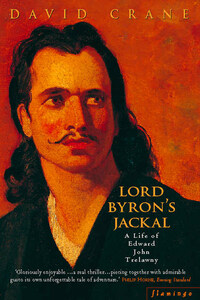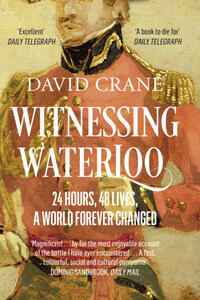âWhat a queer set! What an assemblage of romantic, adventurous, restless, crack-brained young men from the four corners of the world. How much courage and talent is to be found among them; but how much more of pompous vanity, of weak intellect, of mean selfishness, of utter depravity ⦠Little have Philhellenes done towards raising the reputation of Europeans here!â
Samuel Gridley Howe>1
ON 6 FEBRUARY 1833 a seventeen-year-old Bavarian prince entered the town of Nauplia as the first king of Modern Greece. Out in the Gulf of Argos the ships of the sponsoring powers rode at anchor in the bright spring sunshine. French, Russian and British bands serenaded each other across the water in an improbable display of amity, while from the batteries on shore salute after salute rolled across the bay in tribute to Christendomâs youngest nation.
To the pragmatist and romantic alike there can have been no more fitting place for Otho to begin his reign than here on the Argolic Gulf under the watchful gaze of Europeâs navies and Greeceâs Homeric past. Nothing, it seemed, had been left to chance to guarantee his future. The civilized world had given its blessing and its money. A loan had been provided to buttress his new country through her first years, an indemnity paid to her old Ottoman masters to rescue her from her troubled past.
Inside the town Bavarian and French troops stood ready to enforce Europeâs choice on a population only too accustomed to dissent, but for the moment the precautions were unnecessary. Mountain Suliotes and island merchants, sailors and Moreot bandits, Peloponnesian peasants and Phanariot politicians waited to greet the young king as their saviour from years of war and chaos. As Otho rode on his white horse through the cheering crowds into the reconquered Turkish town, the peculiar spell of Greece, its unique hold on the nineteenth century as the cradle of Western culture and the champion of Christianity, took on a palpable form that seemed in itself a guarantee of the new order.
For a dozen years this small town on the eastern coast of the Peloponnese, some forty miles south of Corinth, had exercised the same charm over the imaginations of Europe and America. From that moment in 1821 when Bishop Germanos had raised the standard of revolt and called on Greece to throw off four centuries of Ottoman rule Nauplia had been as familiar as any city in Europe. Its news was carried in newspapers from Vienna to Boston, its victories celebrated and its defeats mourned, its dead turned into martyrs, its leaders into the heirs of Demosthenes and Leonidas on a wave of popular enthusiasm which sent money and men to fight for a cause that seemed as much Christendomâs as Greeceâs. âNo other subject has ever excited such a powerful sensation,â one enthusiast could write long after the first flush of excitement had faded,
The very peasants throughout Switzerland and Germany inquire with anxiety, when their affairs call them to market, what are the last news ⦠In France subscriptions have been opened, and money solicited throughout every town, on behalf of a Christian Nation doomed to perish by the sword or by famine. The Duchesses of Albey, Broglio, and De Caze; every Frenchwoman distinguished by rank, riches, talent, or virtue, have divided the different quarters of Paris among them, and traverse on foot every street, and enter into every house, demanding the charity of their inhabitants for a nation of martyrs.>2
Almost every foreign volunteer swept along by this enthusiasm had passed through the town of Nauplia, many of them to stay for ever, victims of the squalor, disease and factional greed which lay behind the ceremonial glamour of Othoâs welcome. Italians, Swiss, Swedes, Scots, Irish and Poles had all come here, national rivalries if not forgotten at least subsumed into a common cause, Germans and French who had fought on opposite sides in the Napoleonic Wars, Americans and English enemies at New Orleans united under the name of âPhilhelleneâ â friend of Modern Greece, a Greece which Nauplia promised was the true heir to the land of Homer and Thucydides.
The ceremonial entry of Otho was the last great charade in Naupliaâs history, the last time that the town would work its illusions on a Europe determined to believe. That place is gone, the walls of its lower town pulled down, the surrounding marshes which once earned its pestilential reputation as the Batavia of Greece drained. Within a year of coming ashore from a British frigate, Otho had moved his capital to Athens and the port that the Venetians had called Napoli di Romania had begun its slow decline into the quaint irrelevance of modern Nauplia.









